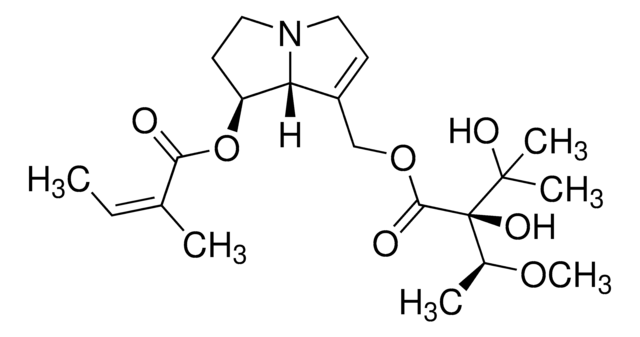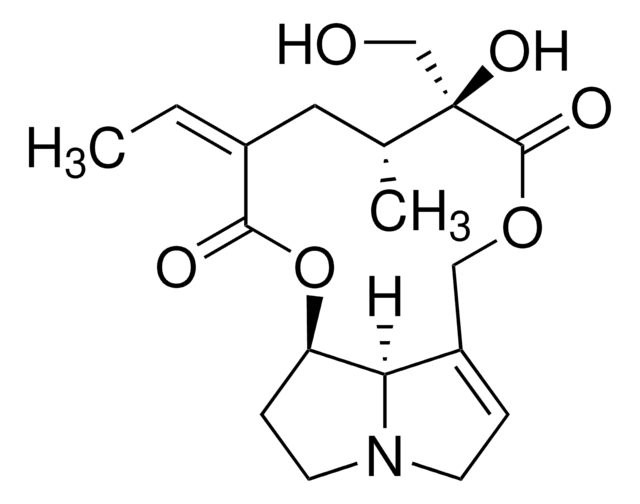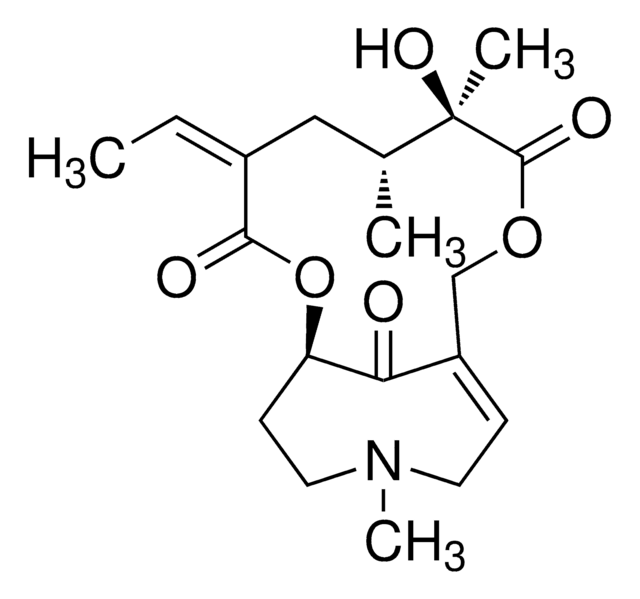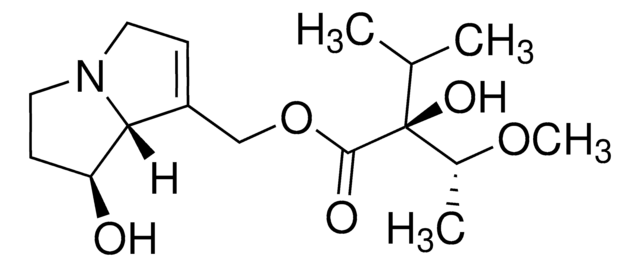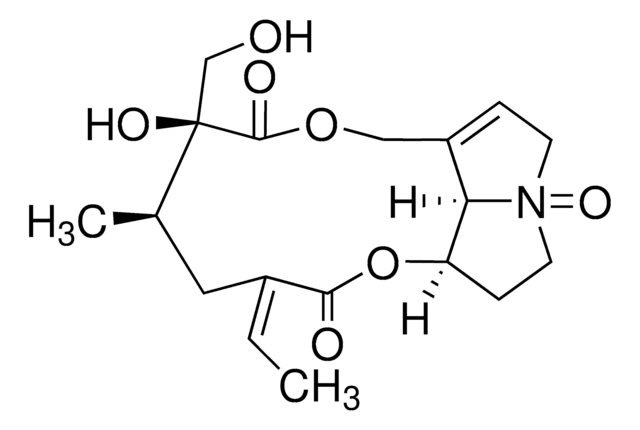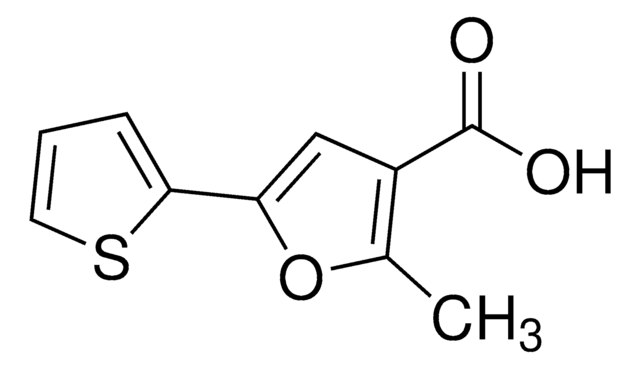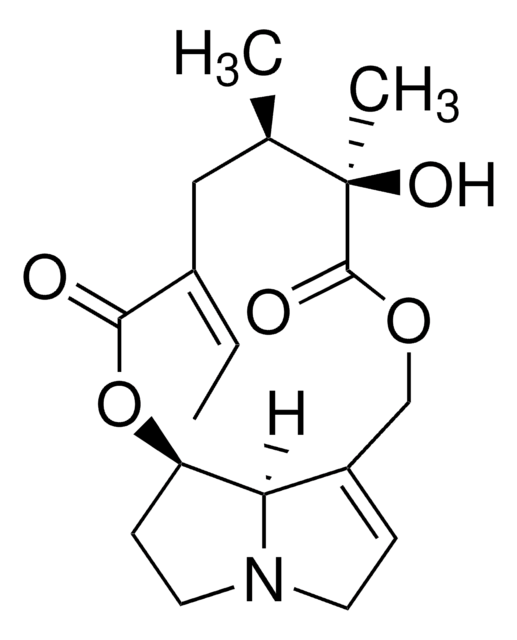R0382
Retrorsine
≥90% (HPLC), powder, retronecine-type pyrrolizidine alkaloid
Synonym(s):
Retrorsin, Senecionan-11,16-Dione, 12,18-Dihydroxy- (9CI), β-Longilobine, 12,18-Dihydroxysenecionan-11,16-dione
About This Item
Recommended Products
product name
Retrorsine, ≥90% (HPLC)
Assay
≥90% (HPLC)
mp
208-211 °C (lit.)
SMILES string
C\C=C1\C[C@@H](C)[C@](O)(CO)C(=O)OCC2=CCN3CC[C@@H](OC1=O)[C@@H]23
InChI
1S/C18H25NO6/c1-3-12-8-11(2)18(23,10-20)17(22)24-9-13-4-6-19-7-5-14(15(13)19)25-16(12)21/h3-4,11,14-15,20,23H,5-10H2,1-2H3/b12-3-/t11-,14-,15-,18-/m1/s1
InChI key
BCJMNZRQJAVDLD-CQRYIUNCSA-N
Looking for similar products? Visit Product Comparison Guide
Application
- as a mito-inhibitory pyrrolizidine alkaloid compound to induce necrotic liver injury in rats
- to induce hepatocellular injury in rats
- to arrest endogenous hepatocyte growth in mice
Biochem/physiol Actions
Signal Word
Danger
Hazard Statements
Precautionary Statements
Hazard Classifications
Acute Tox. 2 Dermal - Acute Tox. 2 Inhalation - Acute Tox. 2 Oral
Storage Class Code
6.1A - Combustible acute toxic Cat. 1 and 2 / very toxic hazardous materials
WGK
WGK 3
Flash Point(F)
Not applicable
Flash Point(C)
Not applicable
Personal Protective Equipment
Certificates of Analysis (COA)
Search for Certificates of Analysis (COA) by entering the products Lot/Batch Number. Lot and Batch Numbers can be found on a product’s label following the words ‘Lot’ or ‘Batch’.
Already Own This Product?
Find documentation for the products that you have recently purchased in the Document Library.
Our team of scientists has experience in all areas of research including Life Science, Material Science, Chemical Synthesis, Chromatography, Analytical and many others.
Contact Technical Service